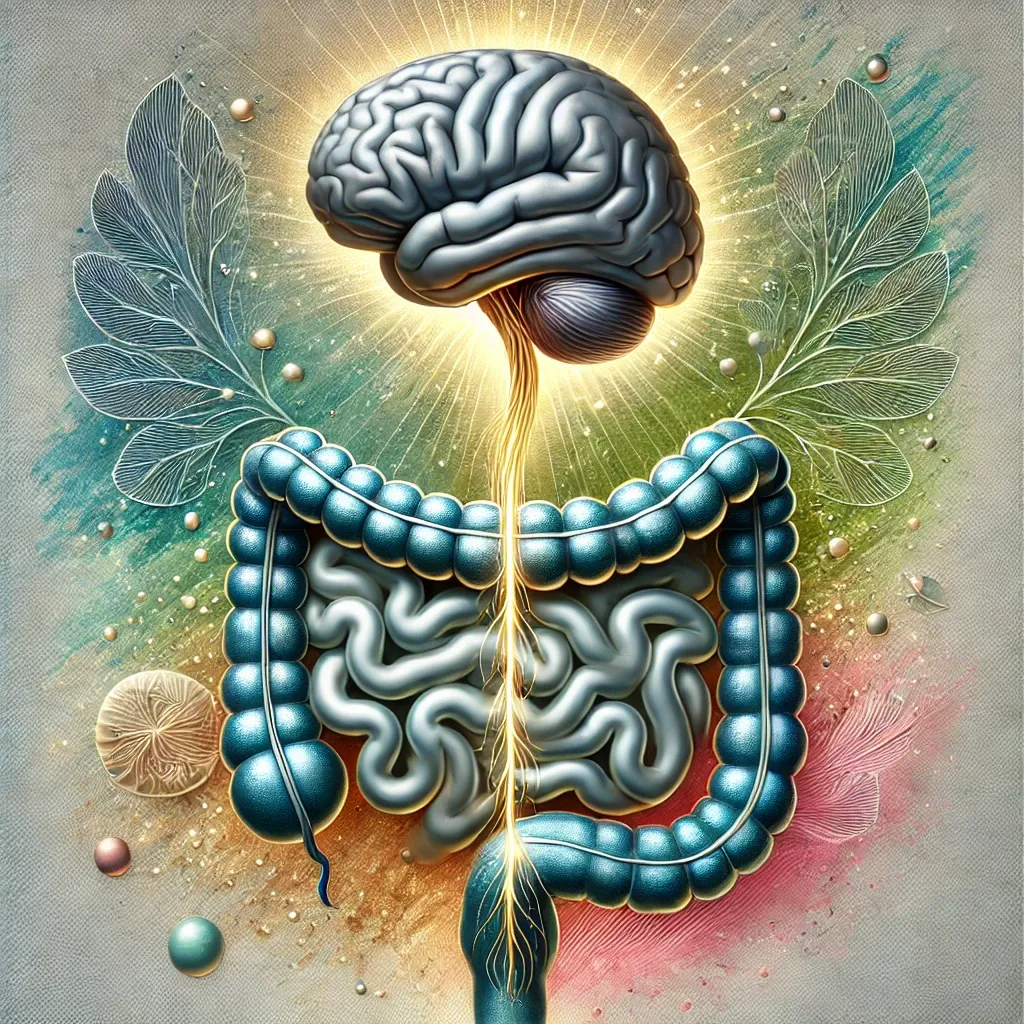Your Gut is Your Second Brain and It Feeds On Fiber. Are You Feeding It?

Have you ever felt like your mood is just off, or your brain feels foggy for no reason? Believe it or not, your gut might be the culprit. Let’s talk about how something as simple as fiber could make a huge difference in how you feel.
What Is Fiber and Why Is It Important?
So, fiber—it’s that thing everyone says you need more of, but what does it actually do? Basically, fiber is a type of carbohydrate that your body can’t digest. It might sound useless, but it’s actually super important because it feeds the good bacteria in your gut.
There are two kinds of fiber you need to know about:
- Soluble Fiber: This one dissolves in water and turns into a gel-like substance. It helps regulate blood sugar and makes sure you’re absorbing nutrients (Harvard T.H. Chan School of Public Health).
- Insoluble Fiber: This one doesn’t dissolve; it adds bulk to your stool and keeps things moving smoothly in your digestive system (Cleveland Clinic).
Even though your body doesn’t absorb fiber, your gut bacteria thrive on it. A healthy gut microbiome (that’s the community of bacteria living in your gut) plays a big role in digestion, getting rid of toxins, and keeping you feeling your best.
How Your Gut and Brain Are Connected
The gut-brain axis is a two-way communication system connecting the digestive system and the central nervous system, including the brain. This connection is facilitated by nerves, hormones, and biochemical messengers. A key player in this system is the vagus nerve, which acts as a primary highway for signals traveling between the gut and the brain (Breit et al., 2018). When your gut bacteria are well-nourished—primarily through fiber—they produce beneficial compounds like short-chain fatty acids (SCFAs) and neurotransmitters, including serotonin and dopamine. Research shows that about 90% of the body's serotonin is produced in the gut, influencing mood regulation and mental clarity (Carabotti et al., 2015).
Feeding your gut with fiber helps these bacteria thrive, which can directly impact how you feel emotionally and mentally. On the flip side, an imbalanced gut microbiome can contribute to issues like anxiety, depression, and even poor memory (Cryan et al., 2019).
Signs You’re Not Getting Enough Fiber
Think you might not be getting enough fiber? Here are some common signs:
- Short-term issues: You might feel bloated, have irregular bowel movements, or feel tired all the time (Johns Hopkins Medicine).
- Long-term risks: Not getting enough fiber can weaken your immune system, mess with your focus, and even lead to chronic inflammation (NIH).
Sound familiar? You’re not alone—a lot of people don’t get enough fiber in their diets. The good news is, it’s an easy fix.
Easy Ways to Add More Fiber to Your Diet
Alright, let’s talk about how you can get more fiber without completely changing your diet. Here are a few simple tips:
- Start with legumes like lentils or chickpeas to your meals. They’re super versatile and filling.
- Add fruits like berries, apples, or pears. They’re tasty and packed with fiber. The sugar can be problematic if you consume too much. Never drink just the juice, eat the whole fruit.
- Incorporate veggies like broccoli, carrots, and leafy greens. Add them to soups, stir-fries, or even smoothies (Mayo Clinic).
Pro Tip: Increase your fiber intake slowly, and drink plenty of water. Otherwise, you might feel bloated at first (NIH).
Easy Ways to Add Fiber Without the Bloating
Adding fiber doesn’t have to feel overwhelming or uncomfortable. Follow these simple tips:
- Start Slow: Increase your fiber intake by 5 grams per day to avoid bloating. Cooked veggies or legumes are a gentle starting point.
- Hydrate: Fiber needs water to do its job. Aim to drink half your body weight in ounces daily (NIH).
- Mix and Match: Pair oats (soluble fiber) with almonds (insoluble fiber) for balanced digestion.
What If You Need a Little Extra Help?
Sometimes, getting enough fiber through diet alone can be challenging. If you find yourself falling short, a high-quality fiber supplement can be a great addition to your routine. Consider this Amazon fiber supplement for an easy, convenient way to boost your intake. Always pair supplements with plenty of water and a balanced diet for the best results. This brand is one of the best brands in my humble opinion, for all of your supplemental needs.
Healing Aspect of Fiber
Adequate fiber intake plays a critical role in supporting gut barrier integrity, which is essential for healing a condition commonly known as “leaky gut.” Leaky gut occurs when the lining of the intestines becomes overly permeable, allowing undigested food particles, toxins, and pathogens to enter the bloodstream and trigger inflammation. Fiber, especially soluble fiber, helps nourish the gut bacteria that produce short-chain fatty acids (SCFAs) like butyrate. SCFAs strengthen the tight junctions between intestinal cells, reducing permeability and restoring the gut lining’s health (NCBI). By consuming a fiber-rich diet, you’re giving your gut the tools it needs to repair itself, reduce inflammation, and prevent harmful substances from escaping into your system.
Are You Getting Enough Fiber?
Fiber is such a simple but powerful way to improve your gut and brain health. When you take care of your microbiome, you’re also taking care of your mood, digestion, and overall wellness.
Here’s my challenge for you: Pick just one fiber-rich food to add to your diet today. Your gut will thank you, and so will your brain!
In health,
Jamie Shahan MSN, CRNA, RN
Empowering Holistic Health
🌐 Connect with me on Social Media:
This article contains affiliate links and I may make a little cash along the way. I'd be stupid not to add them! If I am educating you about making changes then I may as well recommend items for you to try. These suggestions will get you looking in the right direction.



